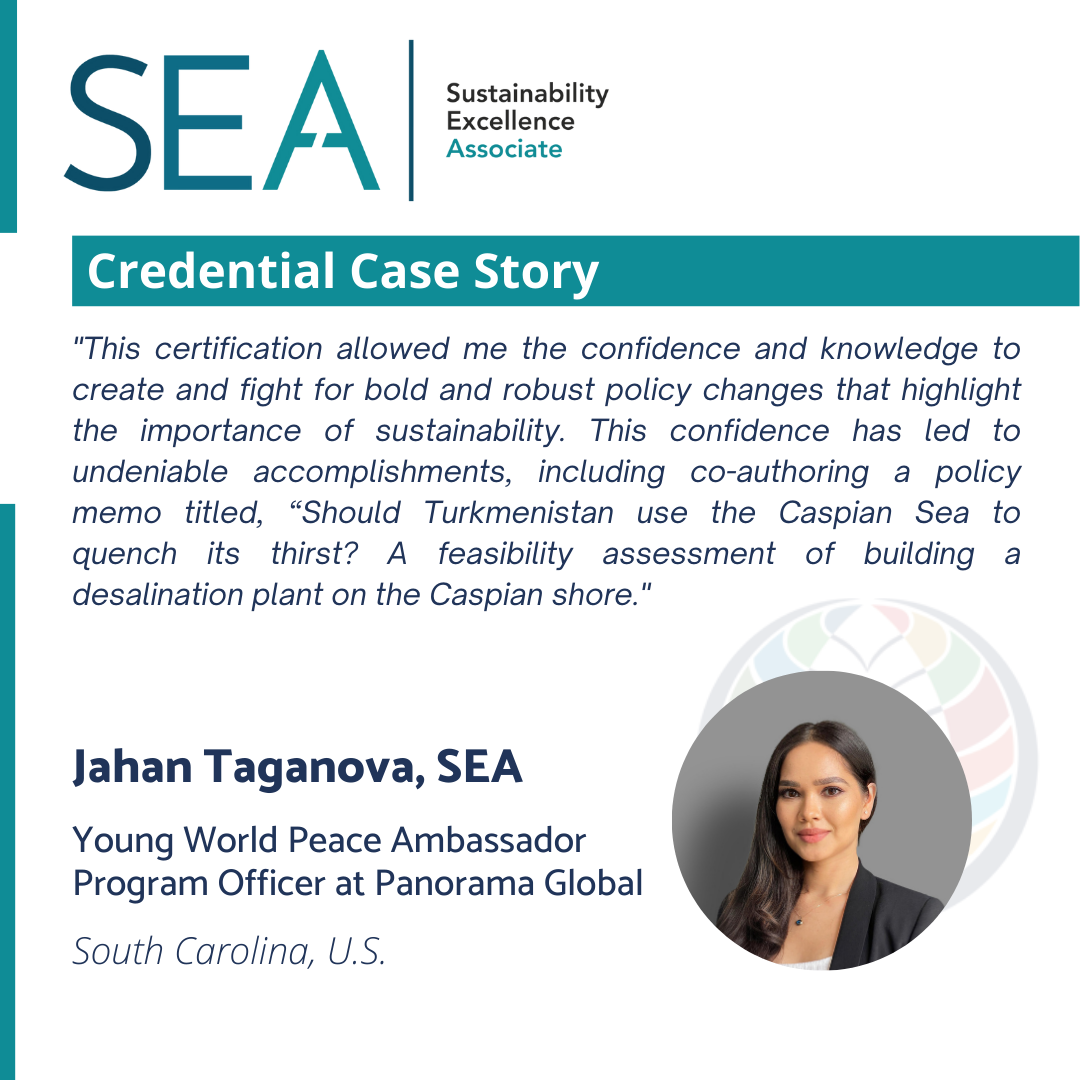By Nicole Cacal, MSc,
•
October 30, 2025
Nicole Cacal, MSc, is Executive Director of the TRUE Initiative in Hawaii and serves as Vice President on the Governing Board of ISSP. In our October blog, she challenges the prevailing narrative around AI's environmental impact, arguing that strategic deployment can transform AI from an environmental burden into a driver of recursive sustainability. Drawing on her background in strategic design and technology management, she presents emerging pathways for responsible AI adoption that balance societal benefit against environmental risk. Toward Appropriate and Responsible AI: Pathways to Sustainable Adoption and Infrastructure Nicole Cacal · October 27, 2025 Whenever I give an AI presentation or offer advice on AI adoption, whether to business owners, C-level executives, or sustainability professionals, one concern surfaces time and time again, especially here in Hawaii: the environmental tension. People want to explore AI's potential, but they're acutely aware of the energy consumption, the water usage, the carbon footprint. It's become almost a reflex: mention AI, and someone immediately raises the environmental cost. I get it. The data centers, the training runs, and the resource demands. They're real and they're significant. But here's what I've come to believe: if we shift the narrative from focusing solely on AI's detriment to the environment and instead ask how much good it can create, what role we can play in driving data centers to go greener, and how we can generate recursive sustainability, we unlock better questions. We start thinking forward rather than just defensively. As sustainability professionals, our job isn't to reject technology wholesale. It's to shape its evolution. And right now, we have an opportunity to influence how AI develops and deploys in ways that align with planetary boundaries and social equity. But to do that, we need to move beyond binary thinking. Right-Sizing AI: Why Bigger Isn't Always Better One of the most overlooked levers we have for sustainable AI is also one of the simplest: choosing the right model for the job. The AI industry has been caught in a "bigger is better" arms race for years now. Every new model release touts more parameters, more capabilities, more everything. And sure, these massive general-purpose models are impressive. But they've created a dangerous assumption: that every task requires maximum firepower. This is where my strategic design training from Parsons kicks in. Good design isn't about having the biggest toolkit. It's about matching the tool to the task. It's about elegance through constraint. The same principle applies to AI deployment. The emerging concept of "Small is Sufficient " is gaining traction for good reason. Research shows that selecting smaller, purpose-fit AI models for specific tasks can achieve nearly the same accuracy as their larger counterparts while reducing global energy demand by up to 28% . Twenty-eight percent. That's not marginal; that's transformational. Think about what your organization actually needs. Are you processing customer service inquiries? Analyzing spreadsheet data? Generating product descriptions? Most of these tasks don't require a frontier model. A fine-tuned, task-specific model will do the job with a fraction of the computational overhead. The shift we need is cultural as much as technical. We need to move from asking "what's the most powerful AI we can deploy?" to "what's the most appropriate AI for this specific use case?" That question changes everything, from procurement decisions to vendor relationships, internal training, and infrastructure planning. AI as Infrastructure Manager: The Self-Optimizing Data Center Here's an irony that doesn't get enough attention: AI might be energy-intensive, but it's also one of our best tools for managing energy systems efficiently. When we only think of AI as a consumer of data center resources, we miss part of the story. AI can also be the conductor of efficiency, orchestrating complex systems in real-time to minimize waste and maximize renewable integration. Consider three optimization domains where AI is already making measurable impact: Cooling systems: Data centers generate enormous heat, and cooling accounts for a massive portion of their energy use. AI can continuously adjust cooling based on workload patterns, outside temperature, humidity, and dozens of other variables, optimizing in ways that static systems simply can't match. Workload scheduling: Not all computing tasks need to happen immediately. AI can intelligently schedule batch processing, model training, and background tasks for times when renewable energy is abundant or when grid demand is lowest. This isn't just theory. Companies are already doing this. Renewable energy integration: This one hits close to home in Hawaii, where we're working toward aggressive renewable energy targets but face unique challenges with grid stability and storage. AI-managed facilities can modulate demand in response to solar and wind availability, essentially turning data centers into flexible grid assets rather than inflexible burdens. When organizations approach their operations as integrated systems rather than collections of independent components, they achieve results that surprise even them. AI-orchestrated data centers represent this systems thinking at its most sophisticated. The technology optimizes itself recursively, reducing the footprint of AI through AI. That's the kind of elegant solution we should be scaling. Measuring What Matters: Beyond Energy to Net Benefit But here's the challenge: if we only measure AI's direct energy consumption, we miss the full picture. We need frameworks that capture both the operational cost and the systemic benefit. This is where life cycle assessment combined with comparative modeling becomes essential. We need to ask: compared to what? And over what timeframe? The sectoral success stories are compelling when you run the numbers: Building automation systems powered by AI are consistently achieving energy savings in the range of 20-30% across diverse building types. One documented case study of a commercial office building in the United States showed a 32% reduction in overall energy consumption with a 2.4-year return on investment (a $2.1 million system investment generating $875,000 in annual savings). In Stockholm, the SISAB school building portfolio achieved similar results with a two-year payback period. In precision agriculture, AI-driven irrigation and fertilizer application systems are cutting water consumption by 20% to as much as 50% and reducing chemical runoff, addressing both resource scarcity and ecosystem health. Waste management optimization is another powerful example. AI-powered sorting systems in recycling facilities dramatically improve material recovery rates while reducing contamination. The resource efficiency gains far exceed the AI system's energy footprint. These aren't marginal improvements. When properly deployed, targeted AI applications produce emissions savings and resource efficiencies that dwarf their own operational costs. That being said, given today's fossil fueled data center expansions, we may find that we have much further to go in making the environmental positives outweigh the negatives. But that's no reason to throw in the towel or to assume that these technologies cannot - over time - deliver more environmental benefits than downsides. It requires companies to demand more of their technology providers and deploy their systems sustainably when greener options become available. But (and this is crucial) these benefits only materialize when we pair the right AI with the right infrastructure and the right deployment strategy. Which brings us to governance. The Path Forward: Governance, Transparency, and Adaptive Thinking The sustainability community, including organizations like ISSP, is actively developing shared frameworks for assessing AI's net impact. These emerging approaches include system-level energy auditing, selective task deployment protocols, and strategies for minimizing "dark data" (the vast amounts of stored data that's never used but still requires energy to maintain). Multi-stakeholder governance initiatives are bringing together technologists, policymakers, environmental scientists, and business leaders to create adaptive standards. This isn't about creating rigid regulations that will be obsolete in two years. It's about establishing principles and processes that evolve with the technology. Those with a technology management background know that the most successful systems are those designed for adaptation. We need governance structures that can respond to new information, course-correct quickly, and remain grounded in measurable outcomes. Transparency is non-negotiable. Organizations deploying AI need to measure and report not just their energy consumption but their net impact. What problems are you solving? What resources are you saving? What would the alternative approach have cost? These aren't easy questions, but they're the right ones. As sustainability professionals, this is our arena. We have the frameworks: life cycle thinking, systems analysis, stakeholder engagement, and metrics development, to name a few. We need to apply these tools to AI with the same rigor we've applied to supply chains, built environments, and industrial processes. So here's my invitation: What are you seeing in your sector? How is your organization approaching the AI sustainability question? Are you finding innovative ways to ensure deployment is appropriate and responsible? Because ultimately, appropriate AI isn't about choosing between progress and sustainability. It's about insisting that progress is sustainable. It's about right-sizing models, optimizing infrastructure, measuring net benefit, and building governance systems worthy of the challenge. The technology itself is neutral. Our choices determine whether AI becomes a driver of sustainability or another extractive burden. Let's choose wisely.




